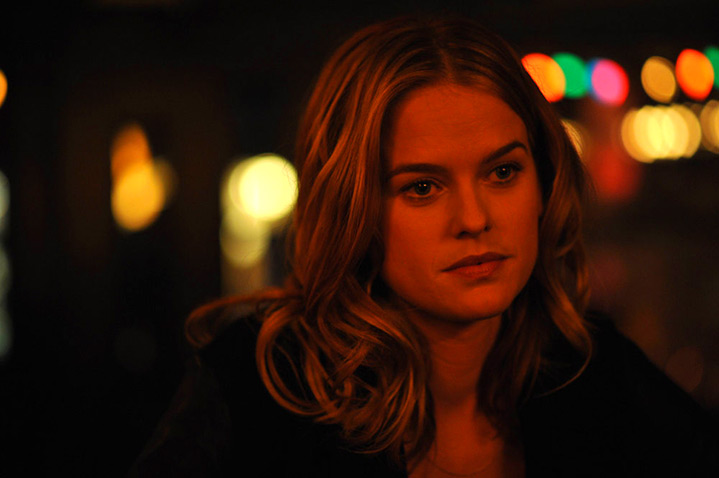
 "I’ve got an idea," Nick says a handful of times in the film. Eager to avoid a wedding reception where he’ll face an ex-girlfriend that’s still the love of his life, and with Brooke on a ticking clock to get back to Boston by 7 AM before her husband returns from a business trip at 8 AM (for reasons revealed later), Nick openly says he wants to be a hero and does everything he can, within his meagre means, to make that happen. But it really leads to a series of not very amusing or appealing misadventures, designed to force Nick and Brooke to face the problems they are trying to put behind them or ignore, while also realizing the future may lie with each other.
"I’ve got an idea," Nick says a handful of times in the film. Eager to avoid a wedding reception where he’ll face an ex-girlfriend that’s still the love of his life, and with Brooke on a ticking clock to get back to Boston by 7 AM before her husband returns from a business trip at 8 AM (for reasons revealed later), Nick openly says he wants to be a hero and does everything he can, within his meagre means, to make that happen. But it really leads to a series of not very amusing or appealing misadventures, designed to force Nick and Brooke to face the problems they are trying to put behind them or ignore, while also realizing the future may lie with each other.
"Before Sunrise" is an obvious touchstone and influence on "Before We Go," right down to a running device involving pretend phone calls (except Nick and Brooke call their past selves), but it severely lacks that film’s heart and soul. What made Linklater’s film(s) work so well, and the characters feel so real, was that we learned everything about them. Celine and Jesse’s journey through Vienna was partially about escaping their respective breakups, but their discussions centered on all the things people connect over—love, life, religion, philosophy—and made them complex, compelling people you wanted to spend time with and know more about. By contrast, Brooke and Nick are not even half as interesting. "Before We Go" is like going on a date with someone who only talks about their ex; indeed, much of Brooke and Nick’s time together is spent focused on people who have hurt them, so when we’re supposed to believe during the third act that they are being drawn to each other, it’s a bit mysterious why they find each other interesting, beyond having a mutual shoulder to cry on. Their passions, motivations, dreams and thoughts never surface to help suggest why there is something more to their brief nighttime odyssey.
Meanwhile, when the script isn’t working, Evans turns towards the soundtrack and leans on indie rock when he can (and when the low-budget picture can afford it) to attempt to do some of the emotional lifting. But when those cuts includes overused or outdated choices like "Song For Zula" by Phosphorescent (see also "The Amazing Spider-Man 2" and "The Spectacular Now") and Bloc Party‘s "So Here We Are" (used on "One Tree Hill" twice, Katherine Heigl‘s "27 Dresses"), not to mention a closing credit song by omnipresent soundtrack emotional shorthand Bon Iver. And it’s even more frustrating because the snatches of score by Chris Westlake, when used, are actually quite good and more effective than the safe indie rock selections.

If there is anything Chris Evans can take away from "Before We Go," it would be to treat the film as a tremendous learning experience. Making a good film requires more than simply aping the structure and superficial qualities of better movies, and that there is much to be learned by digging deeper into the technical and emotional mechanics of what makes them work. Otherwise, you end up with an effort like this: a movie so firmly convinced it has all the moving parts, it never investigates whether they work well together. While Nick and Brooke might walk away from the evening wondering if those few hours together stoked something that’s real, for the audience, those 89 minutes will feel like an eternity that they’ll be ready to be divorced from. [D]
This is a reprint of our review from the 2014 Toronto International Film Festival.













